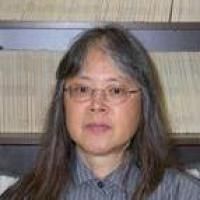Towards a genetic theory for the evolution of the sex ratio II. Haplodiploid and diploid models with sibling and parental control of the brood sex ratio and brood size
Date
1981-01-01
Authors
Journal Title
Journal ISSN
Volume Title
Repository Usage Stats
views
downloads
Citation Stats
Abstract
Population genetic models involving sister, brother, and father control of the brood sex ratio and brood size in both the haplodiploid and diploid cases are constructed and analyzed. The results are interpreted in light of the verbal theories which predict the evolution of the sex ratio to a value which is proportional to the ratio of relatedness of the controlling members of the family to males and to females produced in the brood. In our models, the sex ratio in a certain class of polymorphic equilibria evolves to equal investment in males and females in those cases where the controlling members of the family are symmetrically related to males and females as predicted by the verbal theory. However, the sex ratio in the case of sister control in haploidiploids does not evolve to 1:3, but rather to a value proportional to the ratio of the regression coefficients of additive genotypes. Even so, the predicted sex ratio, which is proportional to 1:3, is in fact an "ESS" in the sense that fixation of a genotype specifying that sex ratio is resistant to the initial increase of all other genotypes. © 1981.
Type
Department
Description
Provenance
Subjects
Citation
Permalink
Published Version (Please cite this version)
Publication Info
Uyenoyama, MK, and BO Bengtsson (1981). Towards a genetic theory for the evolution of the sex ratio II. Haplodiploid and diploid models with sibling and parental control of the brood sex ratio and brood size. Theoretical Population Biology, 20(1). pp. 57–79. 10.1016/0040-5809(81)90003-4 Retrieved from https://hdl.handle.net/10161/25968.
This is constructed from limited available data and may be imprecise. To cite this article, please review & use the official citation provided by the journal.
Collections
Scholars@Duke

Marcy K. Uyenoyama
Marcy Uyenoyama studies mechanisms of evolutionary change at the molecular and population levels. Among the questions under study include the prediction and detection of the effects of natural selection on genomic structure. A major area of research addresses the development of maximum-likelihood and Bayesian methods for inferring evolutionary processes from the pattern of molecular variation. Evolutionary processes currently under study include characterization of population structure across genomes.
Unless otherwise indicated, scholarly articles published by Duke faculty members are made available here with a CC-BY-NC (Creative Commons Attribution Non-Commercial) license, as enabled by the Duke Open Access Policy. If you wish to use the materials in ways not already permitted under CC-BY-NC, please consult the copyright owner. Other materials are made available here through the author’s grant of a non-exclusive license to make their work openly accessible.
